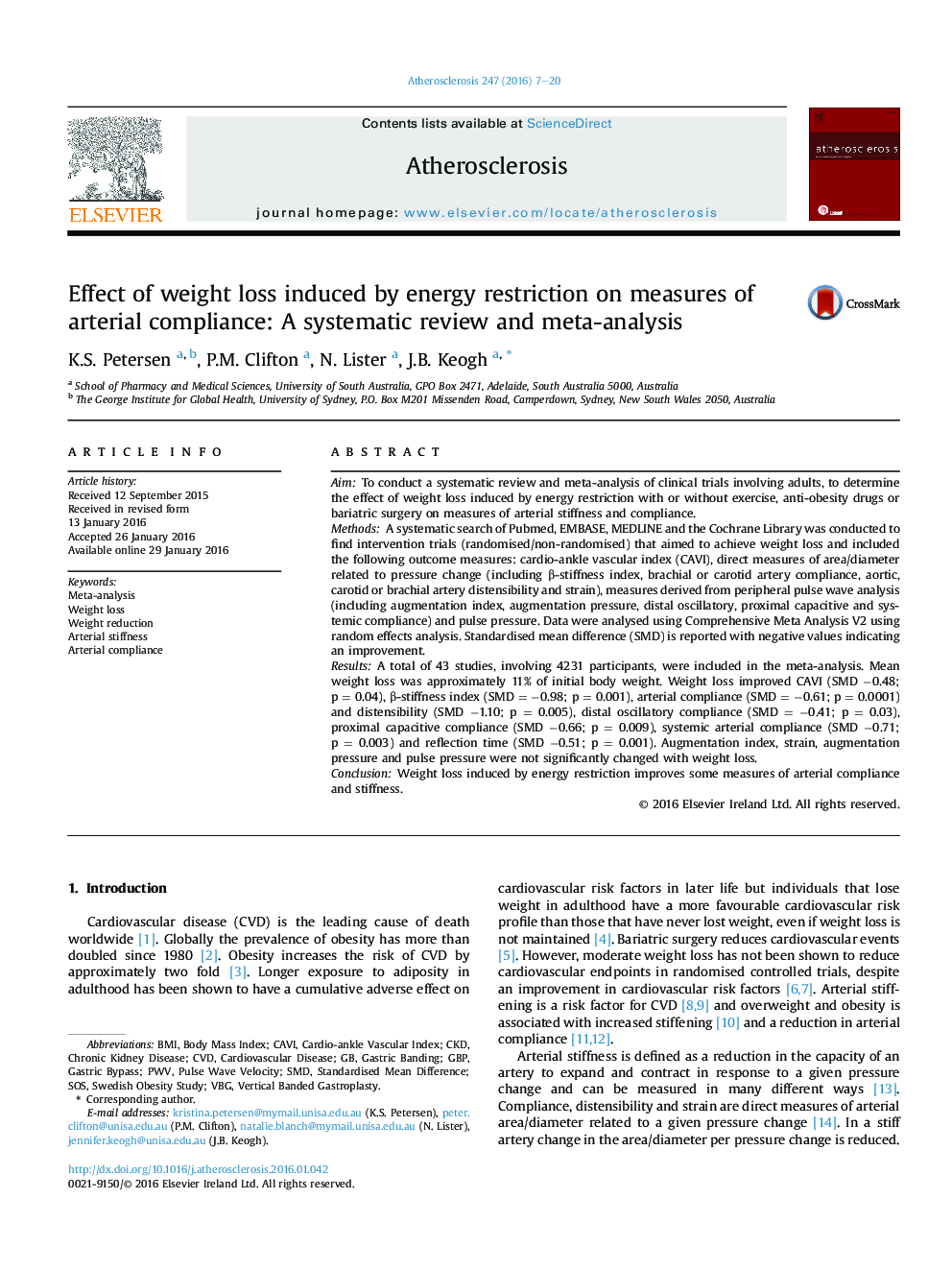| کد مقاله | کد نشریه | سال انتشار | مقاله انگلیسی | نسخه تمام متن |
|---|---|---|---|---|
| 5943329 | 1574718 | 2016 | 14 صفحه PDF | دانلود رایگان |
- Meta-analysis of 43 studies on weight loss and arterial stiffness and compliance.
- Weight loss improved CAVI, β-stiffness index, arterial compliance and distensibility.
- Distal oscillatory and proximal capacitive compliance were improved with weight loss.
- Weight loss improved systemic arterial compliance and reflection time.
- Augmentation index and pressure, strain and pulse pressure were not improved.
AimTo conduct a systematic review and meta-analysis of clinical trials involving adults, to determine the effect of weight loss induced by energy restriction with or without exercise, anti-obesity drugs or bariatric surgery on measures of arterial stiffness and compliance.MethodsA systematic search of Pubmed, EMBASE, MEDLINE and the Cochrane Library was conducted to find intervention trials (randomised/non-randomised) that aimed to achieve weight loss and included the following outcome measures: cardio-ankle vascular index (CAVI), direct measures of area/diameter related to pressure change (including β-stiffness index, brachial or carotid artery compliance, aortic, carotid or brachial artery distensibility and strain), measures derived from peripheral pulse wave analysis (including augmentation index, augmentation pressure, distal oscillatory, proximal capacitive and systemic compliance) and pulse pressure. Data were analysed using Comprehensive Meta Analysis V2 using random effects analysis. Standardised mean difference (SMD) is reported with negative values indicating an improvement.ResultsA total of 43 studies, involving 4231 participants, were included in the meta-analysis. Mean weight loss was approximately 11% of initial body weight. Weight loss improved CAVI (SMD â0.48; p = 0.04), β-stiffness index (SMD = â0.98; p = 0.001), arterial compliance (SMD = â0.61; p = 0.0001) and distensibility (SMD â1.10; p = 0.005), distal oscillatory compliance (SMD = â0.41; p = 0.03), proximal capacitive compliance (SMD â0.66; p = 0.009), systemic arterial compliance (SMD â0.71; p = 0.003) and reflection time (SMD â0.51; p = 0.001). Augmentation index, strain, augmentation pressure and pulse pressure were not significantly changed with weight loss.ConclusionWeight loss induced by energy restriction improves some measures of arterial compliance and stiffness.
Journal: Atherosclerosis - Volume 247, April 2016, Pages 7-20
